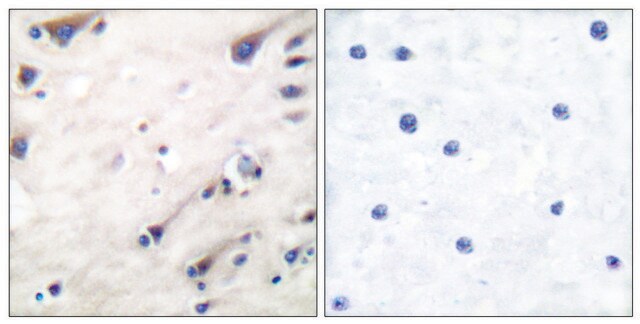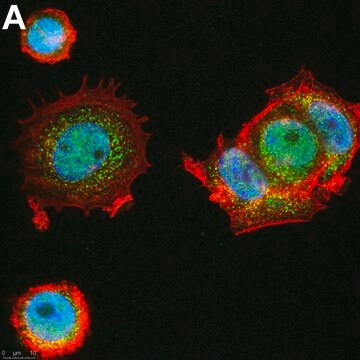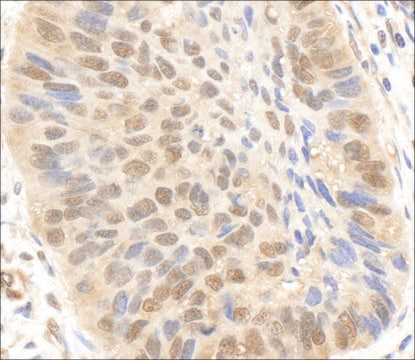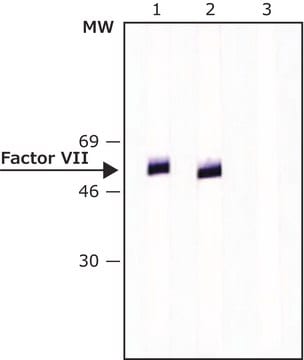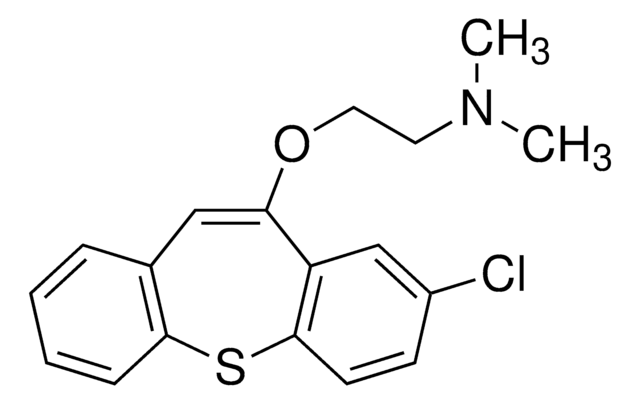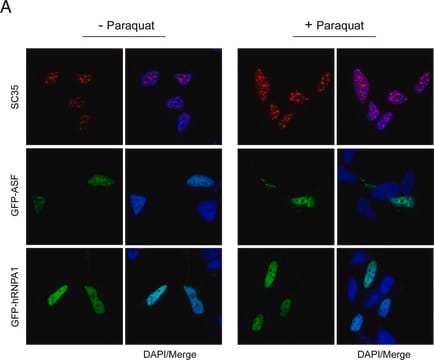05-257
Anti-p300 CT Antibody, clone RW128
clone RW128, Upstate®, from mouse
Synonym(s):
KAT3B
About This Item
Recommended Products
biological source
mouse
Quality Level
antibody form
purified immunoglobulin
antibody product type
primary antibodies
clone
RW128, monoclonal
species reactivity
mouse, rat, human
manufacturer/tradename
Upstate®
technique(s)
ChIP: suitable
immunoprecipitation (IP): suitable
western blot: suitable
isotype
IgG1
NCBI accession no.
UniProt accession no.
shipped in
dry ice
target post-translational modification
unmodified
Gene Information
human ... EP300(2033)
General description
p300 and CBP have similar structures. Both contain five protein interaction domains, the nuclear receptor interaction domain (RID), the CREB and MYB interaction domain (KIX), the cysteine/histidine regions (CH1 and CH3) and the interferon response binding domain (IBiD). In addition p300 and CBP each contain a protein or histone acetyltransferase (PAT/HAT) domain and a bromodomain that binds acetylated lysines and a PHD finger motif with unknown function.
p300 and CBP are thought to increase gene expression in three ways:
(1) by relaxing the chromatin structure at the gene promoter through their intrinsic histone acetyltransferase (HAT) activity
(2) by recruiting the basal transcriptional machinery including RNA polymerase II to the promoter
(3) by acting as adaptor molecules.
Specificity
Immunogen
Application
Epigenetics & Nuclear Function
Histones
Chromatin Biology
RNA Binding Protein (RBP)
Quality
Target description
Physical form
Storage and Stability
Analysis Note
Positive Antigen Control: Catalog #12-309, Hela cell nuclear extract. Add an equal volume of Laemmli reducing sample buffer to 10 μL of extract and boil for 5 minutes to reduce the preparation. Load 20 μg of reduced extract per lane for minigels.
Other Notes
Legal Information
Disclaimer
Not finding the right product?
Try our Product Selector Tool.
recommended
Storage Class Code
12 - Non Combustible Liquids
WGK
WGK 1
Flash Point(F)
Not applicable
Flash Point(C)
Not applicable
Certificates of Analysis (COA)
Search for Certificates of Analysis (COA) by entering the products Lot/Batch Number. Lot and Batch Numbers can be found on a product’s label following the words ‘Lot’ or ‘Batch’.
Already Own This Product?
Find documentation for the products that you have recently purchased in the Document Library.
Our team of scientists has experience in all areas of research including Life Science, Material Science, Chemical Synthesis, Chromatography, Analytical and many others.
Contact Technical Service